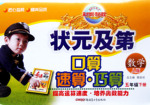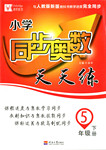题目内容
Calvin Coolidge, thirtieth president of United States, was a person who hated gossiping(闲聊). He had no time for small talk. The following two incidents clearly show how Coolidge enjoyed silence.When he was vice-president, Coolidge had plenty of opportunities to take part in Washington’s social life, especially the many dinner parties. Because of his knowing nothing about the art of conversation, he did not exactly endear(使……受喜欢)himself to his hostesses. One lady felt she could solve this problem. She placed him next to Alice Roosevelt Longworth, daughter of former President Theodor Roosevelt. Mrs. Longworth, an excellent conversationalist, began to chat in her usual charming(媚人的)manner, but all attempts to arouse(引起)interest on the part of the vice-president were fruitless. Finally, she said, “I’m sure that being to as many dinners as you do, you must get terribly bored.”
Without lifting his eyes from his plate, Coolidge answered in a low voice, “Well, a man has to eat somewhere.”
Later, when he was president and again at a dinner party, Coolidge was seated next to a most clever society woman, one of those busybodies, who seem to take delight in trying to change the lives of everyone they meet.
“Oh Mr. President,” she said, “you are always so quiet. I made a bet(打赌)today that I could get more than two words out of you.”
The president became angry and then said, “you lose.”
1. Calvin Coolidge was ________.
A. president of the U.S
B.vice-president of the U.S
C.a man of few words
D.all of the above
2. His hostesses found him ________ guest.
A. a pleasing
B.an easy-going(随便的)
C.a difficult
D.a boring
3. At one dinner, the hostess placed Calvin Coolidge next to the daughter of former President Roosevelt ________.
A.by mistake B.jokingly
C.angrily D.all of the above
4. From the story we can see Calvin Coolidge’s ________.
A. dislike for small talk
B.sense of humor
C.unskillful at conversation
D.all of the above
5. The underlined word “busybodies” in the last paragraph means “________”.
A. people who take too much interest in the affairs of others
B.people who enjoys silence
C.people who just mind their own business
D.people who make others angry
解析:
| 1.D 该题是一道概括题。要求根据全文陈述,对Calvin Coolidge这个人物进行概括。为此,我们应注意整篇文章中属于他的身份、特点的说明。 “Calvin Coolidge, thirtieth
president of the United States …” 这两句表明Coolidge曾当过副总统,后来又当了总统;另从语篇主要讲述他寡言少语的事例,可以判定最佳选项为D项。
2.D 该题是细节题。考查学生对Coolidge在别人家做客时给女主人留下的印象的判断能力。应注意选词描述Coolidge是什么样的客人,要紧扣作者在文中渗透的观点思考,由“Because of his knowing nothing about the art of conversation, he did not exactly endear himself to his hostesses.” 可知,他肯定是太无趣味了,不能让别人喜欢自己,D项为最佳项。 3.B 该题是细节题。考查学生对女主人安排Coolidge座位的意图的理解。从文中叙述 “One lady felt she could solve this problem” 以及 “Mrs. Longworth, an excellent conversations, began to chat in her usual charming manner.” 应理解这位女士是想故意引发他谈话,以此解决Coolidge不开口讲话的“难题”,女主人也想看看这个安排是否奏效,但谁也不是恶意。 4.B 该题是推理判断题。考查学生是否真正理解通过此文所揭示Calvin Coolidge的个性特征。语篇讲述了两次宴会上两位不同的女士都未能引发他交谈的事情,尤其是对第二位女士所言 “You are always so quiet. I made a bet today that I could get more than two words out of you”, Coolidge的回答是两个字“You lose”,充分显示了他的个性与幽默。 5.A 这是一道细节题。要求学生对作者行文的语气,以及与Coolidge性格形成鲜明的对比的那位女士的描述,正确猜测busybodies的词意。一个只关心自己的事,懒得去管别人喜不喜欢谈话的人,是不会费尽心思逗Calvin Coolidge一起说话的。
|
提示:

 状元及第系列答案
状元及第系列答案 同步奥数系列答案
同步奥数系列答案The United States is one of the few countries in the world that has an official day on which fathers are honored by their children. On the third Sunday in June, fathers all across the United States are given presents, treated to dinner or otherwise made to feel special.
However, the idea for creating a day for children to honor their fathers began in Spokane, Washington. A woman by the name of Sonora Smart Dodd thought of the idea for Father's Day while listening to a Mother's Day sermon(说教) in 1909. Having been raised by her father, Henry Jackson Smart, after her mother died, Sonora wanted her father to know how special he was to her.
It was her father that made all the parental sacrifices(牺牲) and was, in the eyes of his daughter, a selfless and loving man. Sonora's father was born in June, so she chose to hold the first Father's Day celebration in Spokane, Washington on the 19th of June, 1910.
In 1924 President Calvin Coolidge declared the third Sunday in June as Father's Day. Roses are the Father's Day flowers: red to be worn for a living father and white if the father has died.
When children can't visit their fathers or take them out to dinner, they send a greeting card. Traditionally, fathers prefer greeting cards that are not too sentimental(伤感的, 忧伤的). Most greeting cards are too special so fathers laugh when they open them. Some give heartfelt thanks for being there whenever the child needed Dad.
【小题1】The United States is special in Father's Day because ______.
| A.many people celebrate the day | B. only America celebrates the day |
| C.America makes it an official day | D. all men are honored in America |
| A.Sonora honored her father on her father's birthday |
| B.Sonora's birthday was June 19 |
| C.it was decided by the president at that time |
| D.her mother died on June 19 |
| A. 4 | B. 10 | C. 14 | D. 24 |
| A.people will wear the same flowers to honor their fathers |
| B.only daughters wear red flowers to honor their fathers |
| C.children must go home to honor their fathers |
| D.fathers are often honored in different ways |
| A.was very kind to anyone |
| B.did a lot for his daughter |
| C.was the first father honored in 1924 |
| D.always help others by giving money |
Should parents ever hit their children?
Research suggests many of us are likely to respond “no”, and public support for spanking (打屁股) has been falling over the years. But surveys also show that 75 percent to nearly 90 percent of parents admit spanking their child at least once.
I was raised in a zero-tolerance( 零容忍) home for disrespect, and my parents often turned to physical punishment. And, no, I don’t feel I was damaged by it.
Nothing is more annoying than watching ill-mannered behavior from children.
But there is data to suggest that a return to old-school spanking isn’t the answer.
Two years ago , Newsweek reported that it had found data suggesting that teens whose parents used physical punishment were more likely to become aggressive(好斗的).
Murray Straus, professor at the University of New Hampshire in America, has studied the topic of children and spanking for decades. He said that children who were physically punished have lower IQs than their peers. It may be that children with lower IQs were more likely to get spanked, but the punishment may have been counterproductive (反作用) to their mental development, as well.
Some researchers make the argument that occasional open-handed smacks (用巴掌打) on the bottom are not only harmless but can have some benefit.
Last year, Marjorie Gunnoe, a psychologist at Calvin College, studied teens who have never been spanked. There are a greater number of children growing up without ever having been physically punished. Gunnoe’s research suggests they don’t turn out any better than those who were sometimes spanked.
There are some parents who simply cannot control their tempers. But I still believe that the best parents are the ones who are able to offer fair and firm discipline (管教) without ever turning to physical punishment.
1. What can we know from the research in the second paragraph?
|
A.Many of the parents made no response to the survey. |
|
B.More and more people support spanking in public. |
|
C.Most parents have the experience of spanking their children. |
|
D.Many of the parents think they should hit their children. |
2. According to Marjorie Gunnoe’s research, ________ .
|
A.the children who have never been spanked do better than those who were sometimes spanked |
|
B.instead of harmless, spanking can have a little benefit |
|
C.spanking has little effect on the children’s future performance |
|
D.the teens who were often spanked are more likely to be aggressive |
3. In the author’s opinion, the best parents are the ones ______.
|
A.who often use physical punishment |
B.who never use physical punishment |
|
C.who use physical punishment properly |
D.who take physical punishment as useful tool |
4.Which of the following is NOT TRUE according to the passage?
|
A.The author’s parents were strict with him when he was young. |
|
B.The author thinks his parents’ spanking did no harm to him. |
|
C.Murray Straus thinks spanking has nothing to do with children’s IQs. |
|
D.Some parents spank their children because they can’t control their tempers. |